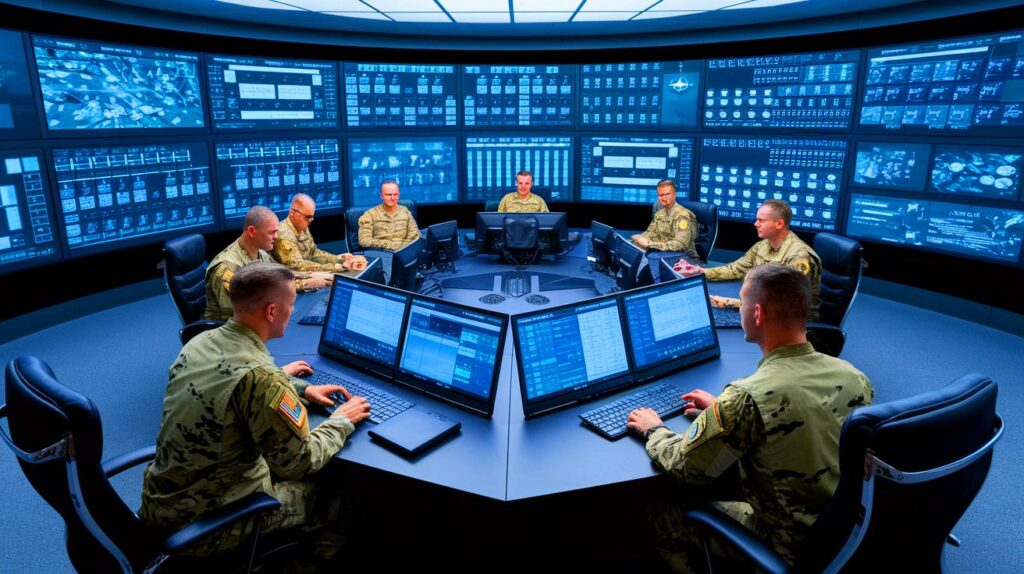| IN BRIEF |
|
In recent weeks, global geopolitics has been shaped by crucial decisions that could redefine power balances. One of the most significant actions has been taken by former U.S. President Donald Trump, who has banned the export of advanced artificial intelligence chips to China. This decision revives a blocking strategy that might have substantial repercussions on the international stage. As tensions between the two superpowers continue to escalate, the impact on the tech and defense industries promises to be considerable. How do these dynamics influence international relations and strategic sectors like aviation and defense?
Trump’s Decision: A Reinforced Blocking Strategy
On April 16, 2025, Donald Trump made a bold decision to ban the export of advanced artificial intelligence chips to China. This measure aims to strengthen the position of the United States in the global tech race. By limiting China’s access to these technologies, the U.S. hopes to slow down its Asian rival’s technological rise. This blocking strategy is not new, but it takes on particular significance in the current intense tech competition. AI chips, essential for developing advanced military systems and civilian applications, are at the center of this rivalry.
China, for its part, sees this ban as a direct attack on its technological and economic development. Experts believe that this decision could lead to economic and political retaliation from Beijing. Additionally, it could prompt China to speed up its efforts to develop its own advanced technologies, thus reinforcing its quest for technological autonomy.
Impact on the Defense Industry
The defense industry is particularly affected by this new technological reality. AI chips play a crucial role in the development of modern weapon systems, including drones, fighter jets, and missile defense systems. By depriving China of these technologies, the U.S. seeks to maintain a strategic advantage in the military domain. This could also influence international alliances and defense partnerships.
Defense companies now have to navigate an increasingly complex environment where political decisions have direct implications on research and development. Technology suppliers face the need to diversify their markets and develop innovations that do not exclusively rely on American technologies. This dynamic could favor the emergence of new players in the defense sector, particularly in Europe and Asia.
The Role of Aviation and Space
The aviation and space sector is not exempt from the consequences of this ban. AI technologies are essential for developing new navigation, communication, and security systems. The restrictions imposed by the U.S. could slow down the development of certain Chinese aerospace programs, but they could also spur local innovation. Chinese companies are heavily investing in research and development to reduce their dependence on foreign technologies.
This situation also presents challenges for international aerospace companies collaborating with Chinese partners. They must reassess their business strategies and supply chains to adapt to the new market realities. Ultimately, this upheaval could lead to a reorganization of the aviation and space sector, with long-term implications for the global economy.
Outlook for the Future of the Tech Industry
Current political decisions will have a lasting impact on the global tech industry. Companies must anticipate changes and adapt to a continually evolving environment. The technological competition between the U.S. and China will continue to shape the global landscape, influencing not just the defense sector but also civil and commercial technologies.
As geopolitical tensions escalate, technology enterprises must demonstrate resilience and innovation. They need to explore new markets, develop alternative technologies, and strengthen their research and development capabilities. This period of turbulence could also provide opportunities for firms that can adapt and leverage the new market dynamics.
The ban on AI chip exports to China could mark a turning point in international relations and the global tech race. As nations compete for technological supremacy, how can businesses and governments navigate this complex new landscape and ensure a prosperous future?







